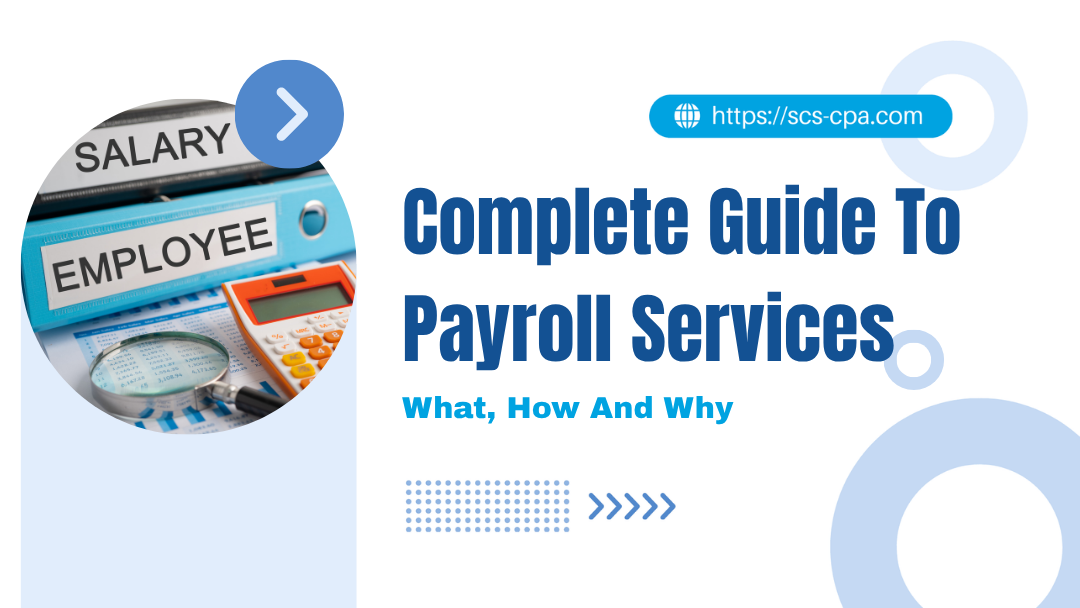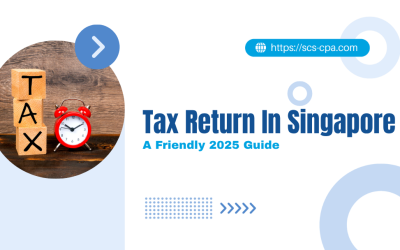
Payday is more than crunching numbers and releasing funds. Behind every accurate payment is a multi-step process involving:
- Collecting employee details
- Computing salaries, including statutory contributions
- Arranging timely disbursements
- Issuing itemised payslips
- Filing contributions and taxes with the relevant Singapore authorities
For many businesses, especially small and growing ones, these steps are time-consuming and risky. Hence, payroll services in Singapore have become a go-to solution for smoother operations. Whether managed in-house or through a trusted vendor, they ensure accuracy and compliance while giving you peace of mind.
What is Payroll Services?

Payroll services refer to professional support that helps businesses handle the entire payroll process, from salary computation to regulatory filings and employee payouts. These services come from external providers. They may use specialised software, integrated systems, or cloud platforms to manage payroll effectively.
The goal is the same, whether you fully or partly outsource. You must ensure your employees are paid correctly. You also need to follow Singapore’s labour and tax laws.
Key components of payroll services include:
Salary Calculation and Processing: They factor in basic pay, attendance, overtime, bonuses, and allowances when computing salaries. Then, adjustments are made for unpaid leave, new hires, terminations, and pro-rated payments.
Statutory Compliance: A payroll service keeps you aligned with the
- Employment Act, Ministry of Manpower (MOM),
- Central Provident Fund (CPF) Board, and
- The Inland Revenue Authority of Singapore (IRAS).
Moreover, these services are trained to handle CPF contributions, Skills Development Levy (SDL), and tax form submissions (e.g., IR8A, IR21 for foreign staff).
Salary Disbursements and Payslips: Payroll services systematically disburse salaries directly to employees’ bank accounts, either via GIRO or bulk payment uploads. They also generate itemised, MOM-compliant payslips, which are sent to employees through email or portals.
Automation: Many payroll service uses cloud-based software to automate repetitive tasks. This feature enables employees to focus on strategic work.
Record Keeping and Reporting: Advanced systems accurately collect payroll history to support audits, compliance reviews, and statutory reporting.
Handling Payroll for Foreign Workers: Payroll services take care of foreign employees’ welfare by
- Managing Foreign Worker Levy (FWL) payments (or, monthly pays) based on the workers’ jobs and sectors
- Tracking all foreign workers’ permits and S Pass holders’ obligations.
- Meeting tax clearance requirements, like IR21 submissions upon termination or repatriation.
How Do Payroll Services in Singapore Work?

Most payroll services in Singapore operate through secure digital platforms that automate calculations, disbursements, and statutory submissions. These platforms integrate with existing accounting and HR tools.
Here’s how a typical payroll outsourcing service in Singapore works:
- Initial setup: Collects company and employee information to configure the system.
- Monthly processing: Uses up-to-date tax and employment law databases to calculate salaries and deductions.
- Reporting and filing: Submits required reports to IRAS, MOM, and CPF automatically or with client approval.
- Support: Notifies clients about new policies or statutory changes and advises on best practices.
Furthermore, they also offer self-service portals for you to view your payslips, request leave, and update information.
Types of Payroll Services
Payroll solutions are not one-size-fits-all. Hence, we will introduce 5 common types of payroll services:
Manual Payroll

Manual payroll services often use spreadsheets, handwritten records, or DIY calculators to complete payroll tasks.
- Best for: Small businesses with a tight budget.
- Pros: It costs less to set up, and you have a bit more control over it.
- Cons: The manual process is time-consuming, high risk of errors and non-compliance
Payroll Software

Platforms like HReasily automate key tasks: salary computation, CPF filing, and payslip generation.
- Best for: SMEs and tech-savvy businesses
- Pros: It performs accurate computations while being flexible enough to be scaled and integrated with your business.
- Cons: It needs more effort to set up and is constantly maintained.
Outsourced Payroll Services

These services are provided by external parties that handle the full payroll process.
- Best for: Businesses focused on compliance and efficiency
- Pros: They have experts and resources to tackle your tasks, saving you a lot of labour hours.
- Cons: You may have less control over day-to-day processing, especially if you fully outsource your payroll process.
Professional Employer Organisation (PEO)

The PEO Payroll serves as a “co-employee” and a third-party. It co-manages both HR and payroll:
- Best for: Fast-growing or complex companies
- Pros: The cross-departmental feature offers a full HR and payroll suite. This means both areas will also receive regulatory coverage.
- Cons: More coverage equals higher cost and possibly limited autonomy in HR policies.
Hybrid Payroll

The Hybrid Payroll is a mix of internal control and outsourced support.
- Best for: Companies with custom structures or international teams
- Pros: The mixture creates room for more flexibility and customisation.
- Cons: It requires additional tools (or workflow) and possibly manpower to manage multiple platforms for varying requests.
How to Choose the Right Payroll Solution
Before investing in one, ask yourself these questions:
Are you managing your payroll internally?
Understand your current setup. If you’re managing payroll in-house but struggling with compliance or accuracy, outsourcing may elevate your situation.
What are your payroll goals?
Are you looking to save time, reduce errors, or scale operations? Identifying your objectives will help you match the right solution.
What resources do you currently have or lack?
Consider whether your internal team has the capacity or knowledge to handle statutory filings and ever-changing regulations.
Is the provider compliant with Singapore’s laws and regulations?
Ensure your provider aligns with the Employment Act, MOM, CPF Board, and IRAS. Look for services that support CPF contributions, tax filings, and the issuance of payslips.
Is the system user-friendly and compatible with your current platforms?
Switching systems requires effort. So, you will need solutions that integrate well with your existing HR, accounting, or ERP tools.
Can the provider scale with your business?
Choose a partner that understands your growth trajectory and can scale services without extra hassle.
What do other businesses say about them?
Client testimonials and reviews offer real insights into their experiences with the brand. Whenever possible, research case studies or ask for references to understand the provider’s reliability and responsiveness.
💡Tip: You can also read our article on Payroll Mistakes That Can Cost You to help you prevent hiccups from happening.
The Takeaway
Managing payroll is like carrying a bowl of rice. One misstep, and things can spill fast. Many businesses in Singapore outsource payroll services to keep their financial operations running smoothly.
Whether you are just starting or expanding across markets, partnering with a knowledgeable, compliant, and experienced provider is key. They can prevent costly mistakes and give you back time to grow your business. One such example is Singapore Corporate Services (SCS). They harnessed their 20 years of experience and tailored tools to assist your next ventures.
Have A Question?
Connect with us for a free
consultation to begin your
business transformation.
Disclaimer: The information provided in this article is intended for general guidance only and reflects regulations as of the publication date. Given that compliance requirements, processes, and fees may change over time, readers are advised to consult official sources such as ACRA for the most up-to-date information or seek professional guidance from our team.
Corporate Income Tax Malaysia: Rates, Filing, and Strategic Compliance
Understand Malaysia’s corporate income tax system. Learn current tax rates, SME tiers, filing deadlines, LHDN requirements, penalties, and more.
Understanding the Core Types of Audits and Their Roles in Accounting in Singapore
Learn the key types of audits in Singapore to build trust and stay compliant. Examples are statutory, internal, GST, and forensic.
Tax Return In Singapore: A Friendly 2025 Guide
Want to be a responsible business owner? Read this guide to tax return in Singapore to help understand tax filing and play your part.



